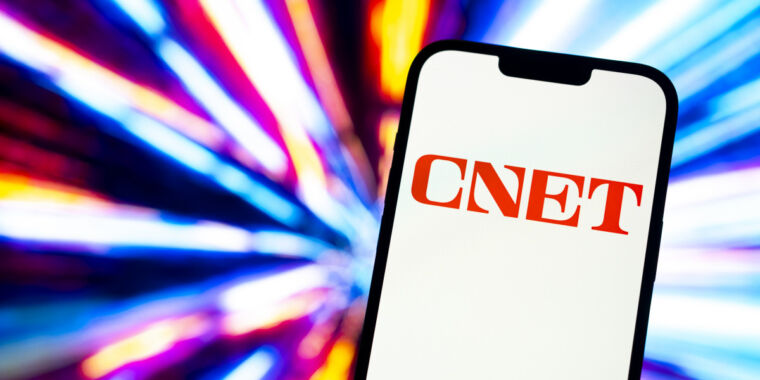Wikipedia recently revised tech website CNET’s reliability rating after extensive discussions among editors concerning the impact of AI-generated content on the site’s trustworthiness, as reported by Futurism. The decision was prompted by concerns over the accuracy of articles on the tech news platform following the introduction of AI-generated stories in 2022.
In November 2022, CNET initiated the publication of articles authored by an AI model credited under the alias “CNET Money Staff.” By January 2023, Futurism highlighted issues of plagiarism and errors within these articles, prompting scrutiny. Concurrently, discussions arose regarding similar automated content publishing plans at BuzzFeed. Despite halting the experiment post-revelation, the damage to CNET’s reputation was irreversible.
Wikipedia administers a page titled “Reliable sources/Perennial sources,” displaying a chart illustrating news outlets and their reliability rankings from Wikipedia’s viewpoint. Subsequent to the CNET disclosure in January 2023, Wikipedia editors engaged in a dialogue on the Reliable Sources project page regarding the platform.
David Gerard, a Wikipedia editor, expressed, “CNET, typically considered a standard tech RS [reliable source], has commenced trialing AI-generated articles fraught with inaccuracies.” Following unanimous consensus among editors, steps were taken to downgrade CNET’s reliability status.
Presently, Wikipedia’s Perennial Sources list categorizes CNET into three segments: pre-October 2020, denoting CNET as “generally reliable”; October 2020 onwards, highlighting a decline in editorial standards post-acquisition by Red Ventures; and November 2022 to January 2023, labeling CNET as “generally unreliable” due to the utilization of an AI tool resulting in flawed content.
Futurism revealed that the CNET AI-generated content issue triggered a broader discourse within the Wikipedia community concerning the credibility of Red Ventures-owned sources like Bankrate and CreditCards.com, which also featured AI-generated material during the same period. Editors criticized Red Ventures for a lack of transparency regarding AI implementation, further diminishing trust in their publications. This opacity played a pivotal role in the decision to downgrade CNET’s reliability rating.
In response to the downgrade and ensuing AI-generated content controversies, CNET asserted its commitment to upholding stringent editorial standards.
A CNET spokesperson conveyed to Futurism, “CNET is the leading provider of impartial tech-focused news and guidance globally. Our longstanding credibility is founded on rigorous editorial practices and product evaluations. It is essential to clarify that CNET is not actively leveraging AI for content creation. While no immediate plans are in place for reinstatement, any future endeavors will adhere to our transparent AI policy.”










